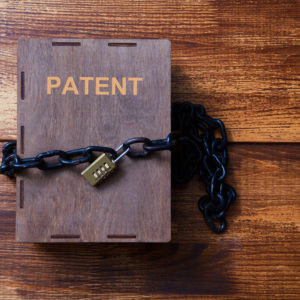A bipartisan U.S. House bill would restrict how patent licensing companies file intellectual property suits with the U.S. International Trade Commission (ITC), thereby adding additional protection to American industry from unfair foreign competition.
There are patent licensing companies whose U.S. business is based solely on licensing patents. These companies have occasionally been able to establish that they have a domestic industry based on the activities of third-party companies like their licensees.
Through the use of “exclusion orders,” the ITC has the power to ban products from being allowed into the U.S. for sale, and this power is being abused, according to the bill’s sponsors and domestic industries that rely on U.S. patents.
In the last few years, the ITC has become a forum for abusive intellectual property litigation by patent license entities, which produce no goods or services and typically do not have a U.S. domestic industry to protect.
Reps. Suzan DelBene (D-Wash.) and David Schweikert (R-Ariz.) sponsored “The Advancing America’s Interests Act,” H.R. 8037, which would reform both the domestic industry and public interest inquiries in ITC litigation, helping to keep the commission fixed on defending U.S. companies and consumers.
“The ITC was established to protect U.S. companies and consumers from unfair foreign competition, but in recent years, patent licensing entities have abused the ITC process for financial gain,” DelBene and Schweikert said in a joint statement. “This legislation addresses this problem and helps protect American businesses from unfair and unjustified claims.”
The legislation would:
- Establish an appropriate “domestic industry” standard. This section would require that a U.S. company cannot be used as a plaintiff/complainant unless it voluntarily joins a complaint requesting the ITC’s relief.
- Reaffirm the ITC’s public interest obligation. The ITC will be required to consider that public interest is paramount in the exercise of its remedial powers (regarding an exclusion order) and affirmatively determine that any exclusion serves the public interest.
“This is an important step in the right direction towards reforming the ITC’s unfair imports process to ensure that American businesses have equitable access to protection for their ideas,” Schweikert said in the joint statement. “America has always been a shining light for innovation, and we must be vigilant in ensuring our role as trailblazers.”
The High Tech Inventors Alliance (HTIA) — which includes companies like Google, Amazon, Microsoft, Oracle and Intel — backs the bill.
“You have crafted strong legislation that will protect America’s interests by modernizing the ITC process to curb its abuse while also protecting legitimate concerns,” a group of HTIA companies wrote in a letter to the two congressional sponsors. “Your legislation takes a narrow approach to clarify some key terms, such as what qualifies as a ‘domestic industry,’ and updates critical public interest factors.
“In so doing, you will have ensured that the ITC protects America’s industrial, economic, and consumer interests and that these important considerations will be paramount.”
The bill would make changes to the parts of Section 337 of the Tariff Act, which govern ITC patent cases and determines whether there is unfair competition in importing products into — or their subsequent sale in — the United States.
Section 337 declares the infringement of a U.S. patent, copyright, registered trademark or mask work to be an unlawful practice in import trade.
“The new definition of domestic industry will help ensure that Section 337 is used to help rather than harm U.S. manufacturers,” HTIA Executive Director Dave Jones said. “And requiring that ITC exclusion orders serve the public interest will allow Section 337 to function as Congress originally intended in protecting U.S. industries and the American public.”
The bill also adds language to the statute that licensing can only be relied on to establish a domestic industry if it “leads to the adoption and development of articles that incorporate the patent, copyright, trademark, mask work, or design.”
The bill would also change how the ITC decides whether to ban imports of infringing products by mandating that “public interest is paramount in the exercise of its remedial powers” and that it must “affirmatively determine that any exclusion serves the public interest,” the lawmakers said in their joint statement.

